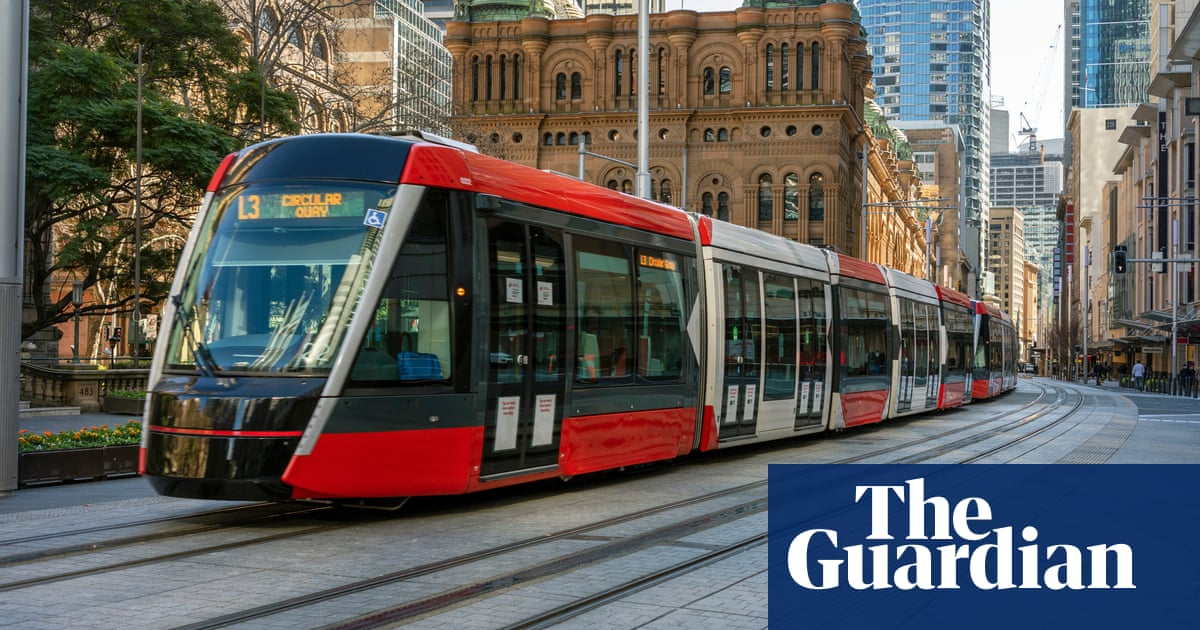
Sydney commuters are expected to face major peak-hour disruption for an entire week with light rail workers shutting down tram services over pay and conditions.
All inner-Sydney light rail lines are due to grind to a halt during peak hours from 8am to 10am and 4pm to 6pm, from Monday to Friday, after the union decided to ramp up its industrial action.
-
Sign up for Guardian Australia’s free morning and afternoon email newsletters for your daily news roundup
Workers say they are fighting transport operator Trandev’s refusal to provide them with more sick days and for a wage increase that keeps up with the cost of living.
The dispute primarily comes down to pay after the operator offered an 18% pay rise over four years compared to workers’ 23% demand, Rail Tram and Bus Union’s David Babineau said.
“Four years ago that may have been OK but in the last four years, we have seen every single commodity from energy to food to petrol and rent has increased significantly,” Babineau said
“For a company that made over $9bn turnover last financial year, we don’t think it’s too much of an imposition.”
The union secretary said light rail workers were also using up their 10 sick days every year.
“It’s not only just when they’re sick, but if they’re drivers or network controllers on a very tight roster, people use sick days when they’re just too fatigued to do their job safely.”
Buses will replace light rail services during the industrial action, Transdev said.
The company’s Sydney managing director apologised for the service disruptions and urged customers to plan ahead.
after newsletter promotion
“We are working hard with transport partners to minimise impact to customers caused by this industrial action,” Arsene Durand-Raucher said.
“Customers should plan ahead and consider alternate transport options during the disruption period or, if possible, avoid non-essential travel on the trams.”
Staff will be stationed on the ground to help manage the disruptions while the company works to resolve the enterprise agreement.
Babineau also apologised to commuters for the disruption.
“We have tried to limit the inconvenience to those peak times to ensure people can get safely to where they need to outside of those hours, for example late at night,” he said.
Inner-city trams were brought to a standstill in a 24-hour shutdown in June, as the union increased pressure on the transport company.
Source: theguardian.com


















